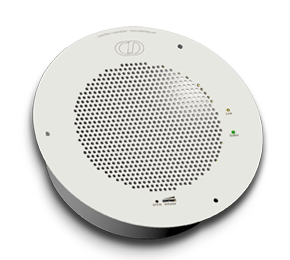According to the U.S. Census Bureau, the average education spending per pupil was $10,700 in 2013 for schools across the US. In 2016, The Center on Budget and Policy Priorities found that states have been providing less financial support for students since 2008.
Private schools are also feeling the squeeze. As any teacher can tell you, the costs have risen for textbooks, computer equipment, and classroom supplies, regardless of school affiliation.
In this financial climate, you want to save money on your school's phone bill. But you also want the best possible features and latest add-ons for your phone system.
With a VoIP phone system, you'll have a shot to lower your school's phone bill, implement the capabilities you need, and gain access to features you didn't even know that you needed. Here's how hosted VoIP can offer significant savings and incisive features for your educational institution.
Free In-Network Calls
Most VoIP providers allow you to call anyone on your phone network for free. You can call teachers, administrators, or any phone connected to the phone system without incurring a charge. School districts have the potential to save a significant amount of money by switching to VoIP, since much of the calls made in a school system are internal. Calls to other SIP-based phones, whether they're connected to your network or not, are usually free too.
No Monthly Contracts
Some hosted VoIP providers do not require monthly contracts for service. This allows your school to maintain fiscal flexibility. In contrast, other business phone services require you to enter phone service contracts, and purchase all-inclusive broadband Internet, which makes it even harder to leave the service once the phone contract expires.
Low Maintenance
Many schools still employ aging analog PBXes that become harder and costlier to maintain each year. Hosted VoIP does not require intensive maintenance. The fundamental components of your phone system - the servers, the feature sets, and the troubleshooting - are all handled offsite by the VoIP company.
Most hosted VoIP services also offer free 24/7 support staff via phone, email, and IM. Widespread service disruptions are acknowledged by the provider, and the VoIP company is responsible for getting service back up and running. Support staff can also help with problems that do not involve the VoIP company, such as router configuration issues. This saves your IT staff time and effort.
Quick Setup
You can install a VoIP phone system in a few hours or less. With DIY-type services, you can also add or subtract phones from classrooms in a few minutes. Some features that distinguish VoIP setup include:
- Uses standard broadband Internet connection
- "Plug-and-play" phone functionality
- Web-based Admin Portal interface
- Instant activation and calling
- Self-setup - no company agents involved
- Necessary equipment (routers, Ethernet cords) all store purchased
You could implement a VoIP phone system at night, while the students are home, and have it all in place by the next morning. See our blog, Think You Don't Have Time to Switch to VoIP, for more info on quick VoIP setups when you're crunched for time.
Intercom Support

Intercom systems are found in most school rooms across the country. Intercoms are traditionally run by equipment separate from the phone system. But you can actually combine intercom into your VoIP phone system and make important announcements directly from a desk phone. Using third party devices, your IT staff can setup dedicated VoIP intercom lines for administrative phones, or anyone who needs intercom access.
CyberData's IP Paging Endpoints are overhead speakers that work best for classrooms. CyberData also has a collection of analog adapters that can merge the analog speaker system currently in your school with a VoIP configuration. Here's how to setup VoIP intercom systems with relative ease.
Calling Features
VoIP phone systems offer a wide array of features for schools of all sizes. Here are some of the most common hosted VoIP features implemented by school systems:
- Auto Attendant - All calls may be automatically answered with a professional greeting, followed by a list of touch tone menu options for routing calls to various lines. Districts can even configure separate attendant menus for each school.
- Caller ID - All incoming calls can be configured to display Caller ID information, such as internal extensions, so staff can stay informed of who is calling. Outbound caller ID can be set at the school and/or the school district level.
- Call Park - School administrators can park a call on their office phone, walk down a hall, and access that call from a phone in a classroom.
- ACD Queues - Automatic Call Distribution (ACD) Queues route calls to the appropriate departments and faculty members. If a member of the school faculty goes on break or leaves for the day, s/he simply can log out of the queue to stop receiving calls.
- Groups - Schools can use groups to efficiently handle calls amongst a team or department. For example, school administrative offices can set a group ring strategy to ring a Principal, followed by the Vice Principal(s), followed by secretaries, etc.
- Business Hour Routing - Set call routing rules during standard business hours, as defined by each school, and off-business hours. After hours calls can be directed to a voicemail box.
- Music on Hold - Callers on hold can listen to standardized music on hold, or customized streams can be used, such as school radio stations or special recordings.
- HD Conferencing - School faculty can participate in high quality audio meetings over the telephone. A school administrator who often holds meetings may choose to have their own personal conference bridge to host parent-teacher discussions.
- Announcements - Educational institutions commonly use the special announcements feature to state information about school closings, schedule changes, and significant calling menu changes.

